In Davos, the facts trump the fears in climate debate
Donald Trump a clear winner at World Economic Forum, despite best efforts of climate doomsayers.
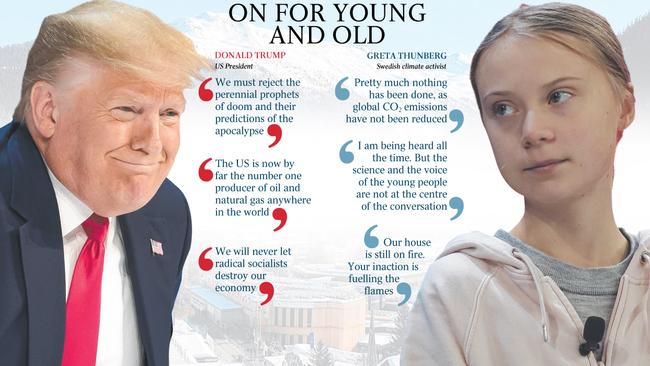
“Davos Man” — the pejorative shorthand for the rich liberal elite who catch up in the Swiss Alps each year — is still in control of the agenda of the world’s most elite conference. The vague nouns beloved of Davos men and women — inclusion, resilience, climate action, sustainability — peppered the program, which is in full swing this week with more than 3000 delegates in attendance.
But their political power is slipping away, starkly illustrated when the conference’s two highly unlikely protagonists — Donald Trump and Swedish teen activist Greta Thunberg — were anything but cohesive on Wednesday.
Rubbing shoulders
Trump, the face of resurgent populist politics throughout the West and a conventional approach to business and economic growth, clashed with Thunberg, who shot to stardom as the frustrated face of “climate action” — a sort of Joan of Arc who demands an immediate end to fossil fuel use.
German economist Klaus Schwab founded the World Economic Forum in 1971. A not-for-profit foundation, its mission is to “improve the state of the world by engaging business, political, academic and other leaders of society to shape global, regional and industry agendas”.
No event attracts such a prestigious flock of political and business leaders. Apart from the US President, this year’s talkfest saw Prince Charles, Spanish Prime Minister Pedro Sanchez and Alphabet chief executive Sundar Pichai rub shoulders.
And perhaps no other event emits such worthy, if banal, remarks. “We are totally committed as leaders to driving change. It’s a race without a finish line, but we will make incremental gains as we go forward,” US businessman Peter Grauer told a rapt audience.
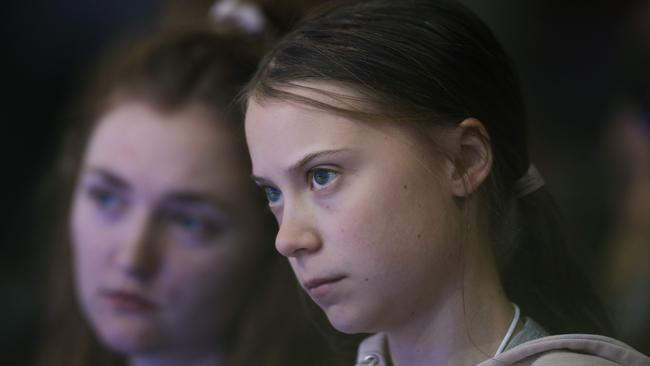
IBM chief executive Ginni Rometty cooed: “This is going to be a decade of trust … if this era is going to thrive, people have to trust the technology and trust that the era will be inclusive.”
It’s a forum in which our Finance Minister, Mathias Cormann, normally would not have stood out but this year was different. Cormann, representing the government, slapped down suggestions from Australian artist Lynette Wallworth that the Coalition wasn’t doing enough to combat climate change.
“Yes, climate change is making things worse … but we have also got to keep it in perspective. In a sense, Australia has always been a country that has suffered extreme weather events,” Cormann said on a panel dedicated to the global impact of Australia’s bushfires, which reportedly burned an area twice the size of his native Belgium.
“Australia absolutely does its bit. The proposition that is circulated by some, that we are not committed to effective action on climate change, is false,” he added.
For Trump, this year’s conference was a platform to rub his success in the noses of the world’s elite, who had largely written him off when he was running for the White House in 2016, then derided his early years as President — and now face his likely re-election before the next Davos meeting in January next year.
“The American dream is back, bigger, better and stronger than ever before … and no one is benefiting more than America’s middle-class,” Trump told the forum.
It’s a claim, however galling for the audience, that is becoming harder to refute. Wage growth in the US has picked up under his presidency, rising back above 3 per cent and bringing to an end a period of real income stagnation more than a decade long.
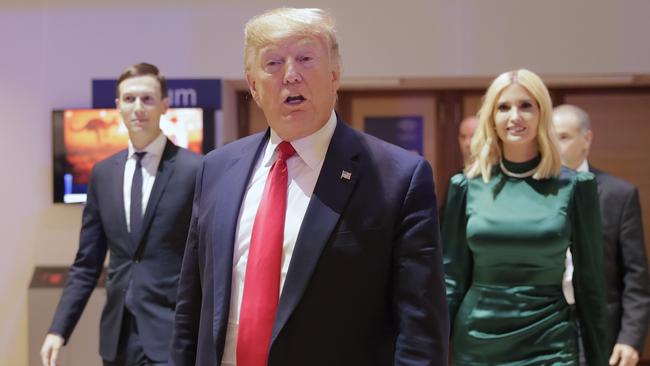
The US, with a freshly inked deal with China, appears to be winning the trade war. The stockmarket, Trump’s preferred measure of success, has continued to achieve new records. And the US economy is wallowing in the longest economic expansion in its history.
“ ‘America First’ does not mean America alone,” Trump memorably said in his first visit as President in 2018. He didn’t attend last year’s summit amid a partial US government shutdown. This year, the timing was particularly sweet given his impeachment trial was kicking off in the Senate back in Washington, DC, at the same time.
Trump was sending a message not only to the world but also to his Democratic foes. “We will never let radical socialists destroy our economy, wreck our country or eradicate our liberty,” Trump said, in a none too veiled swipe at calls to stamp out fossil fuel use or impose taxes to curb carbon dioxide.
“Fear and doubt is not a good thought process because this is a time for tremendous hope and joy and optimism,” he said, calling on delegates to “reject the perennial prophets of doom and their predictions of the apocalypse”.
Trump struck the wrong, upbeat tone at a conference convened on the premise of an urgent need for action to save the planet, revelling in the US’s new-found position as the world’s No 1 producer of oil and natural gas.
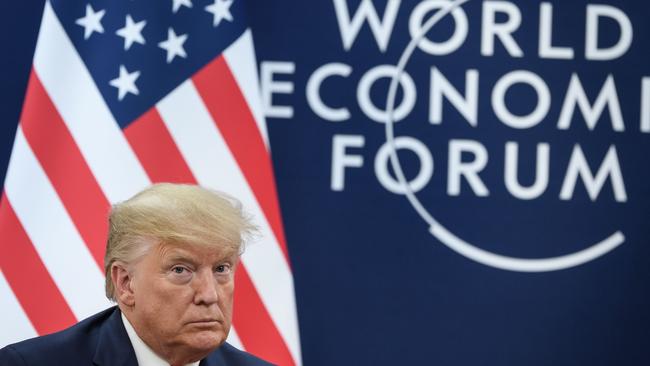
‘Our house is still on fire’
Enter Thunberg, the anti-Trump, who sat just behind Cormann as Trump spoke. Thunberg, who chided governments for “listening to her but not hearing” in her own speech, has become the chief prophet of doom since she burst on to the world stage last year.
“We don’t need to cut emissions, we need to stop emissions,” she urged, before going on to accuse leaders of “cheating and fiddling around with numbers” with talk of cutting emissions to “net zero” — which means emitting no more carbon than is absorbed by the planet — by 2050.
“Our house is still on fire. Your inaction is fuelling the flames by the hour, and we are telling you to act as if you loved your children above all else,” she added, saying “planting trees” wasn’t enough.
Thunberg’s earnest pleas have sway in the world’s boardrooms, such as that of international financial consulting giant deVere.
“Greta’s message is a consistent one, one based on science and fact, and one that is likely to hit home with millennials and Gen Z,” deVere’s chief executive Nigel Green said on Wednesday. “Typically, these generations — those born from the early 1980s onwards — seem to get the climate emergency and the urgency with which it needs to be tackled, far better than older generations.”
Only last week global investment giant BlackRock announced it was to shift out of companies linked to fossil fuel.
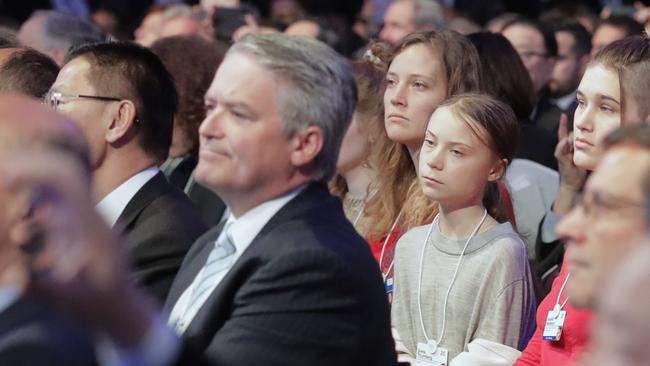
New manifesto
The World Economic Forum this week issued a whole new manifesto for corporations, an update to its more spartan 1973 version.
The new one includes explicit environmental objectives.
“Capitalism, as we have known it, is dead. And this obsession we have with maximising profits for shareholders alone has led to incredible inequality and a planetary emergency,” Salesforce chief executive Marc Benioff said, echoing the push for a wholesale corporate ethics revamp.
Schwab, who has been calling for corporate reform since the 1970s, urged business to move away from “shareholder capitalism” or “state capitalism”, such as that in the US and China, respectively, to “stakeholder capitalism”.
“The young Swedish climate activist has reminded us that adherence to the current economic system represents a betrayal of future generations, owing to its environmental unsustainability,” the 81-year-old said.
“Together with financial industry pressures to boost short-term results, the single-minded focus on profits caused shareholder capitalism to be increasingly disconnected from the real economy.”
The updated manifesto calls on businesses to do things they are likely to resist, such as advocate for “fair competition and a level playing field” in their own sectors, and payment of a “fair share of taxes”.
“Business should make customers fully aware of the functionality of its products and services, including adverse implications or negative externalities,” the new manifesto recommends.
For Schwab, who is a blue-sky thinker, we’re in the middle of the “fourth industrial revolution”, characterised by “a range of new technologies that are fusing the physical, digital and biological worlds, impacting all disciplines, economies and industries, and even challenging ideas about what it means to be human”.
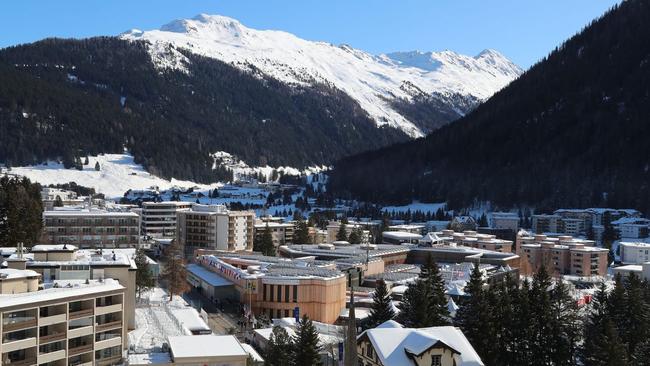
If Davos has made anything clear, it’s that any revolution will be powered by fossil fuels. The views of the democratically elected Trump will overwhelm those of the technocrats.
While Thunberg won the latter crowd at Davos, it’s not clear she is helping the cause of furthering efforts to reduce carbon dioxide emissions among the broader public who ultimately pick our leaders.
She may be preaching to the converted, turning off those on the fence who might not think a teenager is the best authority on such matters, while making people who don’t believe in climate change even more ardent deniers.
Without a rapid embrace of nuclear energy, it’s unlikely that fossil fuels will be phased out any time soon. The share of fossil fuels will decline only from 81 per cent today to 74 per cent by 2040, the International Energy Agency says.
“Despite the considerable investments, renewable energies, such as wind power and photovoltaics are still not capable of satisfying the growing global energy demand,” noted Eric Heymann, a top resource analyst at Deutsche Bank, in a recent analysis.
All the panels in the world can’t change that basic fact.


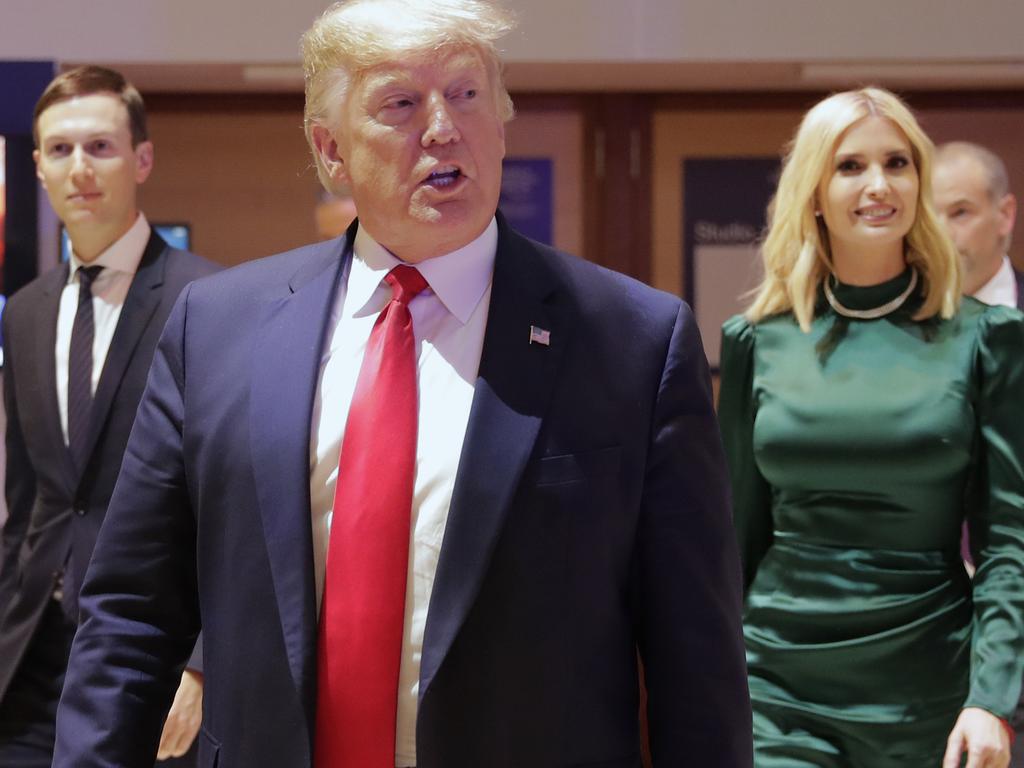

The theme for the World Economic forum in Davos this week is “Stakeholders for a Cohesive and Sustainable World”. It’s a noble aim but one that’s looking increasingly unlikely.